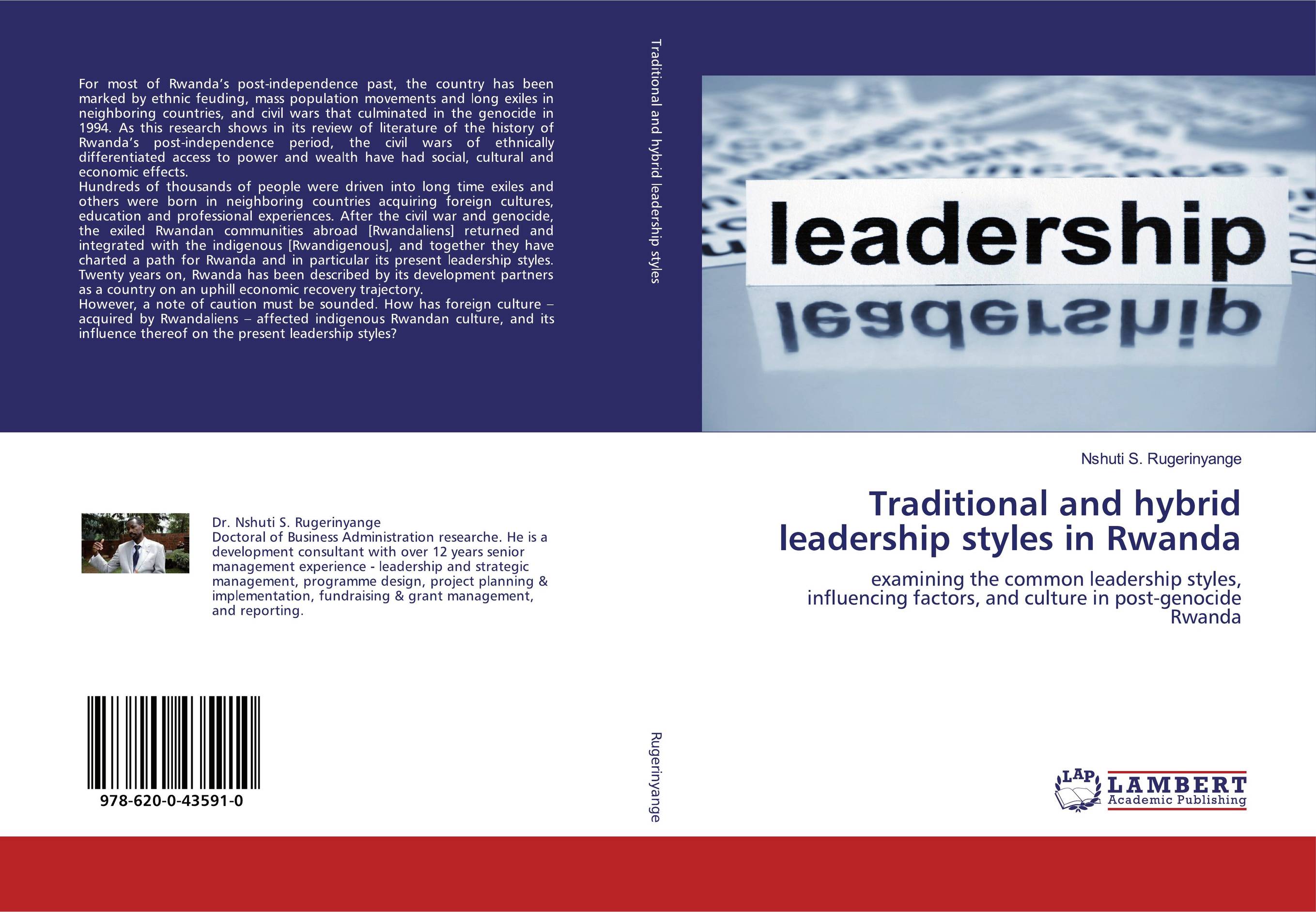| Поиск по каталогу |
|
(строгое соответствие)
|
- Профессиональная
- Научно-популярная
- Художественная
- Публицистика
- Детская
- Искусство
- Хобби, семья, дом
- Спорт
- Путеводители
- Блокноты, тетради, открытки
Traditional and hybrid leadership styles in Rwanda. Examining the common leadership styles, influencing factors, and culture in post-genocide Rwanda

В наличии
| Местонахождение: Алматы | Состояние экземпляра: новый |

Бумажная
версия
версия
Автор: Nshuti S. Rugerinyange
ISBN: 9786200435910
Год издания: 2020
Формат книги: 60×90/16 (145×215 мм)
Количество страниц: 364
Издательство: LAP LAMBERT Academic Publishing
Цена: 60142 тг
Положить в корзину
Позиции в рубрикаторе
Сферы деятельности:Код товара: 572057
| Способы доставки в город Алматы * комплектация (срок до отгрузки) не более 2 рабочих дней |
| Самовывоз из города Алматы (пункты самовывоза партнёра CDEK) |
| Курьерская доставка CDEK из города Москва |
| Доставка Почтой России из города Москва |
Аннотация: For most of Rwanda’s post-independence past, the country has been marked by ethnic feuding, mass population movements and long exiles in neighboring countries, and civil wars that culminated in the genocide in 1994. As this research shows in its review of literature of the history of Rwanda’s post-independence period, the civil wars of ethnically differentiated access to power and wealth have had social, cultural and economic effects. Hundreds of thousands of people were driven into long time exiles and others were born in neighboring countries acquiring foreign cultures, education and professional experiences. After the civil war and genocide, the exiled Rwandan communities abroad [Rwandaliens] returned and integrated with the indigenous [Rwandigenous], and together they have charted a path for Rwanda and in particular its present leadership styles. Twenty years on, Rwanda has been described by its development partners as a country on an uphill economic recovery trajectory. However, a note of caution must be sounded. How has foreign culture – acquired by Rwandaliens – affected indigenous Rwandan culture, and its influence thereof on the present leadership styles?
Ключевые слова: leadership styles, cultural influence, Rwandaliens, Rwandigenous, Ubuntu, Indaba



